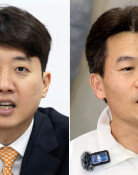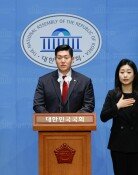Korean Retirees Can Live a Well-off Life Abroad
Korean Retirees Can Live a Well-off Life Abroad
Posted July. 30, 2005 03:06,
Catch affluent Korean retirees.
The Philippines, Thailand, Malaysia and Fiji are engaged in aggressive marketing targeted at Korean retirees with regular incomes.
Those countries are sending a love call that encourages retirees to select them as a second home to spend the rest of their lives, touting their countries year-round warm weather, relatively low living expenses, and unpolluted natural environment.
The Korea Association of Retired Persons (KARP, Chairman: Ju Myung-ryong) has recently received an official offer from the Korea branch of the Philippine Leisure and Retirement Authority. The offer said that the Philippines will actively provide convenience and a long-term stay visa comparable to permanent residence right if the KARP recommends it to Korean retirees who want to spend their retirement life in the Philippines.
Those aged 50 or more who want to participate in the program must deposit 50,000 dollars for up to six months in a designated bank in the Philippines. After the mandatory deposit period ends, you can use the money for allowed purposes such as real estate purchases, stock investments, launching a business and membership purchases.
For applicants from age 35 to 50, conditions are more complicated, like the deposit of 75,000 dollars.
Applicants to Fijis program must be aged 45 or older and have regular incomes. You must initially deposit 100,000 Fiji dollars (about 70 million won) and maintain a 30,000 Fiji dollar (about 21 million won) balance every year (for a four-member family).
President Sung Soo-mok of Fiji Korea, a Korean agency for the program, says that Korean retirees with monthly incomes of two million won can live a first-class life.
Malaysia has already put a program titled, Malaysia, my second home in place. The countrys main target was Japan, but it recently embarked on an aggressive marketing campaign in Korea.
To participate in the program, those aged 50 or older must deposit about 48 million won or prove a monthly income of at least three million won. It takes about 50 million won to purchase a two-room condominium in a resort area, such as Kota Kinabalu and Penang.
Yoo Han-deok, managing director of ENI Consulting, a Korean agency, said that the strength of Malaysia is a stable social atmosphere and security compared with other Southeast Asian countries.
In the case of Thailand, the Thailand Elite Card which Prime Minister Takshin Shinawatra officially announced for sale includes a program attracting foreign retirees. The card is a sort of membership that requires a $25,000 entrance fee or 40,000 baht (about 1.2 million won). The card can be transferred and refunded.
Holders of the card can use major golf courses in Thailand free of charge and are offered various medical services, vehicles and an extendible five-year multi-entry visa.
The program is being received well by the Korean market.
Choi Jeong-in, manager of A. Elite Korea, a Korean agency for Elite Card, said that the agency has sold the membership to about 40 people since it launched its marketing effort in Korea in June.
The Korea office of the Philippine Leisure and Retirement Authority which opened last year concluded some 100 contracts last year alone and expects to see 50 percent more growth this year.
Southeast Asian countries cost less in living expanses compared with Australia and New Zealand and are close to Korea, which is appealing to Korean retirees who value exchanges with their families.
Dong-Woo Chung forum@donga.com







